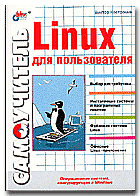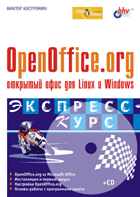Библиотека сайта rus-linux.net
2.1. Requirements
From the Battery-Powered-HOWTO I got this recommendation (modified by WH):
A Message to Linux Distributors: If you happen to be a Linux distributor, thank you for reading all this. Laptops are becoming more and more popular, but still most Linux distributions are not very well prepared for portable computing. Please make this section of this document obsolete, and make a few changes in your distribution.
The installation routine should include a configuration, optimized for laptops. The minimal install is often not lean enough. There are a lot of things that a laptop user does not need on the road. Just a few examples. There is no need for three different versions of vi. Some portable systems do not need printing support.
Don't forget to describe laptop-specific installation problems, e. g. how to install your distribution without a CD/DVD-ROM drive.
Add better power management and seamless PCMCIA support to your distribution. Add a recompiled kernel and an alternative set of PCMCIA drivers with apm support that the user can install on demand. Include a precompiled apmd package with your distribution. Also include IrDA® infrared support and USB support.
Add support for dynamically switching network configurations. Most Linux laptops travel between locations with different network settings (e. g. the network at home, the network at the office and the network at the university) and have to change the network ID very often.
Add a convenient PPP dialer with an address book, that does not try to start multiple copies of the PPP daemon if you click on the button twice (e.g., the RedHat usernet tool). It would be nice to have the PPP dialer also display the connection speed and some statistics. One nice command line dialer that autodetects modems and PPP services is wvdial from OpenSourceInNitix.
At TuxMobil you may find a huge number of links to laptop and notebook Linux installation reports. They are ordered by manufacturer and Linux distribution. Special categories are available for:
Some resources are available in different languages, e.g.in German TuxMobil(DE): Linux on Mobile Computers
in Russian TuxMobil(RU): Linux on Mobile Computers
and in Chinese TuxMobil(CN): Linux on Mobile Computers.






